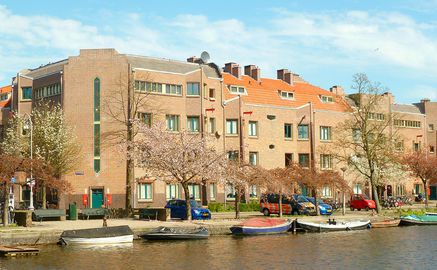

Together with Willem Frederik Hermans and Harry Mulisch, Gerard van het Reve is considered one of the 'Great Three' authors in Dutch post-war literature. His novel 'The Fourth Man', published in 1981, was adapted by Paul Verhoeven for an eponymous film.
Reve was one of the first homosexual authors to come out in the Netherlands. He often wrote explicit material about homoerotic attraction, relationships and intercourse between men. At the time, such blunt depictions in the arts, in the country that was still fairly conservative and religious, were considered shocking. However, as Van het Reve went about this in an ironic and humorous manner, it contributed vastly to making his literature and, arguably, homosexuality itself acceptable for many of his readers. In combination with homoeroticism, Reve addressed religion. The author himself declared that the primary message in all of his work was salvation from the material world we live in.
Gerard van het Reve grew up in this house, where he lived with his parents,from 1938 to 1948. It was here that he wrote 'The Evenings', the work he's most renown for. The book describes the last ten days of 1946 through the eyes of a 23-year-old office clerk named Frits van Egters. This house served as the model for the house in which De Avonden takes place and is referred to in the book as Schilderskade 66 (literally, the Painters Qauy, as Josef Israëls was a renown 19th century Dutch painter). Despite the great appreciation for the then young authors talent, a famous critic called the book dreary, devoid of any positivity, cynical and negative in all respects. Other critics, however, recognized in the work the voice of a generation that had come out of the debris of the war without any inkling of faith.